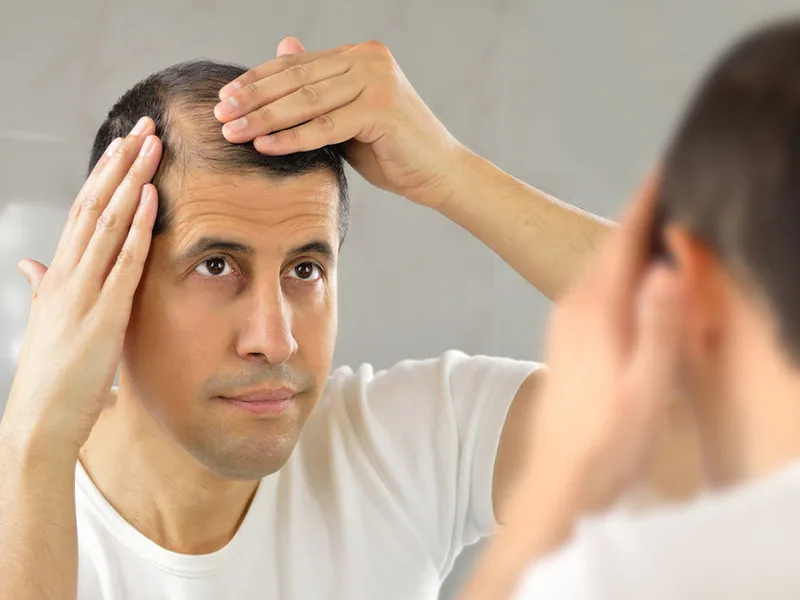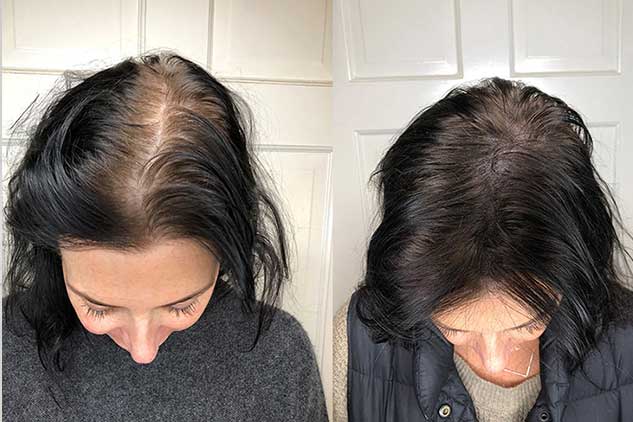
If you have a habit of browsing and scrolling through Instagram, you've likely seen influencers and wellness experts cautioning about the risks of smoking. There are even people saying that smoking leads to hair loss. Hair loss is one of the most concerning body image issues of youth and there is a lot of insecurity that revolves around it. The thought that smoking might lead to hair loss is only making the situation worse. However, the real question is if this is true or just another misleading health caution.
Table of Content:-
In an exclusive interaction with the editorial team of Onlymyhealth, Dr Sanjeev Gulati, Department of Dermatology, Sharda Hospital - Noida, helped us debunk the truth with science. Here is what he shared with us.
How Smoking Affects Hair Growth
Hair follicles require oxygen, nutrients, and good blood circulation to grow well. Sadly, smoking disrupts all three, causing possible hair thinning and even hair loss. Here's how Dr Gulati explained it:

1. Constricted Blood Flow
Nicotine narrows down blood vessels, restricting oxygen and nutrient delivery to hair follicles. This weakens hair strands over time and slows down growth.
Also Read: 5 Vegan Protein Sources To Maximise Protein Absorption For Overall Fitness
2. Oxidative Stress
Cigarettes contain harmful chemicals that produce free radicals. Free radicals are unstable molecules that destroy hair follicle cells, hastening ageing and hair loss.
3. Hormonal Imbalance
Smoking can lead to increased dihydrotestosterone (DHT) levels, a hormone responsible for hair loss and male pattern baldness.
4. Compromised Immune System
Excessive smoking results in a weak immune system which in turn makes one susceptible to scalp infections, which can lead to hair loss.

5. DNA Damage
Research indicates that smoking has the potential to cause DNA damage in hair follicle cells, impairing their capacity to rejuvenate and produce strong, healthy hair.
Also Read: How Kokum Juice Helps Non-Veg Eaters Tackle Acidity and Improve Bowel Movements
What the Research Says
Some scientific studies support the connection between smoking and baldness. One study, published in 2020 in the International Journal of Dermatology, established that smokers were more susceptible to moderate to severe hair loss than non-smokers. Another, conducted in 2018, concluded that smoking hastens premature greying and damage to hair follicles.
Can Smoking Quitting Reverse Baldness?
If you are distressed with all this information, we have for you some good news, too. Your body has an incredible ability to heal. While quitting smoking won’t instantly restore lost hair, it can significantly improve blood circulation, reduce oxidative stress, and create a healthier environment for new hair growth. Additionally, pairing it with a nutritious diet, proper scalp care, and stress management can further support hair regrowth.
Bottomline
Yes, smoking can lead to hair loss by limiting blood flow, inducing oxidative stress, and interfering with hormonal balance. Although genetics and other lifestyle habits are involved, quitting smoking can lower the risk and enhance overall hair health.
So the next time you come across an Instagram post cautioning against smoking and hair loss, you'll know, it's not a social media myth. The science is on our side! Have you experienced any changes in your hair since quitting smoking? Let us know here!
Also watch this video
How we keep this article up to date:
We work with experts and keep a close eye on the latest in health and wellness. Whenever there is a new research or helpful information, we update our articles with accurate and useful advice.
Current Version
